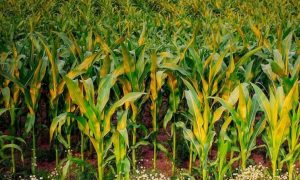Africa’s food systems require a critical shift towards resilience

Former UN and current African Union Food Systems envoys address Africa’s food challenges, emphasizing urgent reforms. Recent El Niño impacts Zambia, Malawi, and Zimbabwe, reducing maize yields by 5%. Southern Africa faces a food crisis, while Eastern Africa projects a surplus of 1.7 million MT of maize. Tanzania leads with a 36% exportable surplus, followed by Uganda and Ethiopia.
As former UN and current African Union Food Systems envoys, we have firsthand experience of the complex challenges confronting Africa’s food systems. Despite the continent’s abundant natural resources, it continues to struggle with food insecurity and malnutrition. The combined impacts of climatic shocks, Covid-19, and civil unrest are further exacerbating these vulnerabilities, emphasising the urgent need for reforms to ensure food security across Africa.
The recent El Niño phenomenon experienced in Zambia, Malawi, and Zimbabwe is expected to significantly reduce maize yields, with a projected decline of 5 per cent from 2.3 MT/Ha in marketing year 2023/24, marking a five-year low in productivity for Zambia. These examples highlight the fragility of Africa’s food systems and the challenges they present.
While southern Africa faces a looming food crisis, a brighter picture emerges in Eastern Africa. Thanks to improved rainfall and production, the region boasts a projected net surplus of 1.7 million MT of maize for the 2023/24. Tanzania leads the pack with an exportable surplus expected to be 36 per cent above average (1.1 million MT), while Uganda and Ethiopia are on track for typical levels (450,000 MT and 400,000 MT respectively).

















